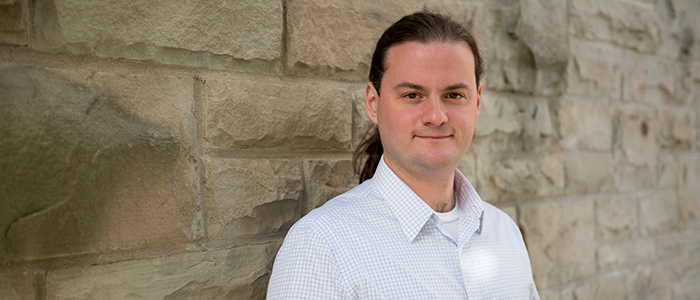Patrick O’Donoghue receives Canadian Cancer Society Innovation Grant

Congratulations to Patrick O’Donoghue, PhD, assistant professor in the Department of Biochemistry, on receiving a Canadian Cancer Society (CCS) Innovation Grant.
Out of a total of 258 grant applications, O’Donoghue’s grant was one of 27 that were approved by the CCS. He will receive $200,000 over two years for his project entitled, “Targeting Pathological Phosphorylation in Oncogenic Pathways”.
The funding will allow O’Donoghue to grow his research group, as he will be able to actively recruit additional engaging and enthusiastic graduate students to his lab.
O’Donoghue and his team will be using technology from his lab to biosynthesize site-specific phosphorylated proteins. They apply this method to study the impact of specific phosphorylation sites on the activity and substrate specificity of an oncogenic kinase (called Akt1) that is over-active in many cancers.
Shawn Li, PhD, professor in the Departments of Biochemistry, Oncology and Paediatrics, who is co-applicant on the grant, will synthesize peptide libraries to search for novel inhibitors of this oncogenic enzyme. O’Donoghue and Li anticipate that this work will identify new drug targets with the potential to lead to new cancer therapies.
O’Donoghue knew the competition would be intense, but was amazed and overjoyed when he found out his proposal was approved.
“In the current funding climate, it is challenging to acquire biomedical funding and it is particularly difficult for young investigators who are just starting out,” O’Donoghue said. “The Innovation Grant program is an essential component in a comprehensive funding approach toward combatting cancer, and supports highly innovative proposals that have the potential to have an impact on our understanding of cancer biology and advance novel therapies.”
The young researcher added that this Grant is a “win” for basic research and recognized that it will take interdisciplinary efforts and new methods to understand the complexity of cancer biology at the molecular level and to find new treatments for diverse human care.









